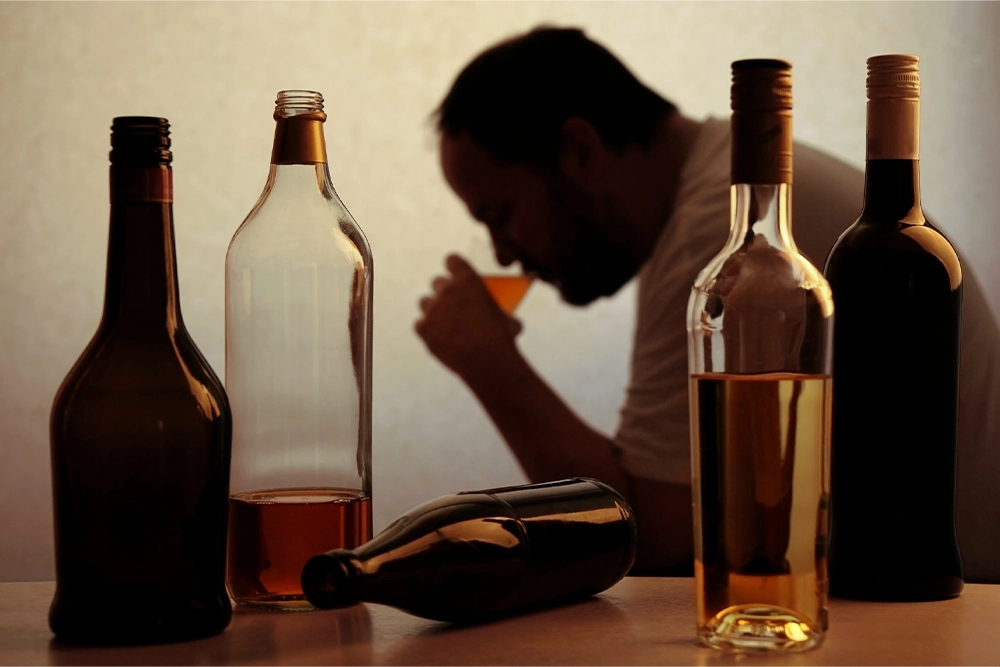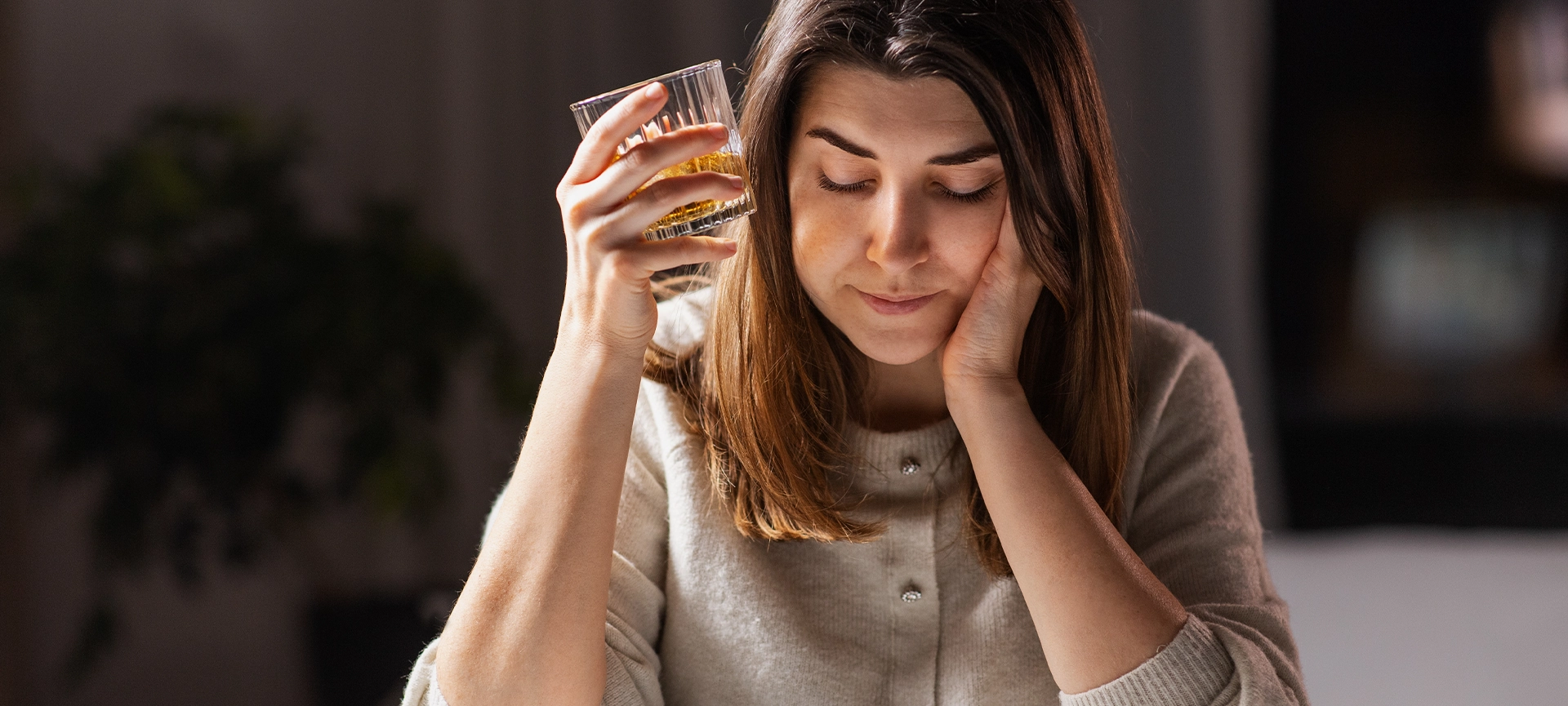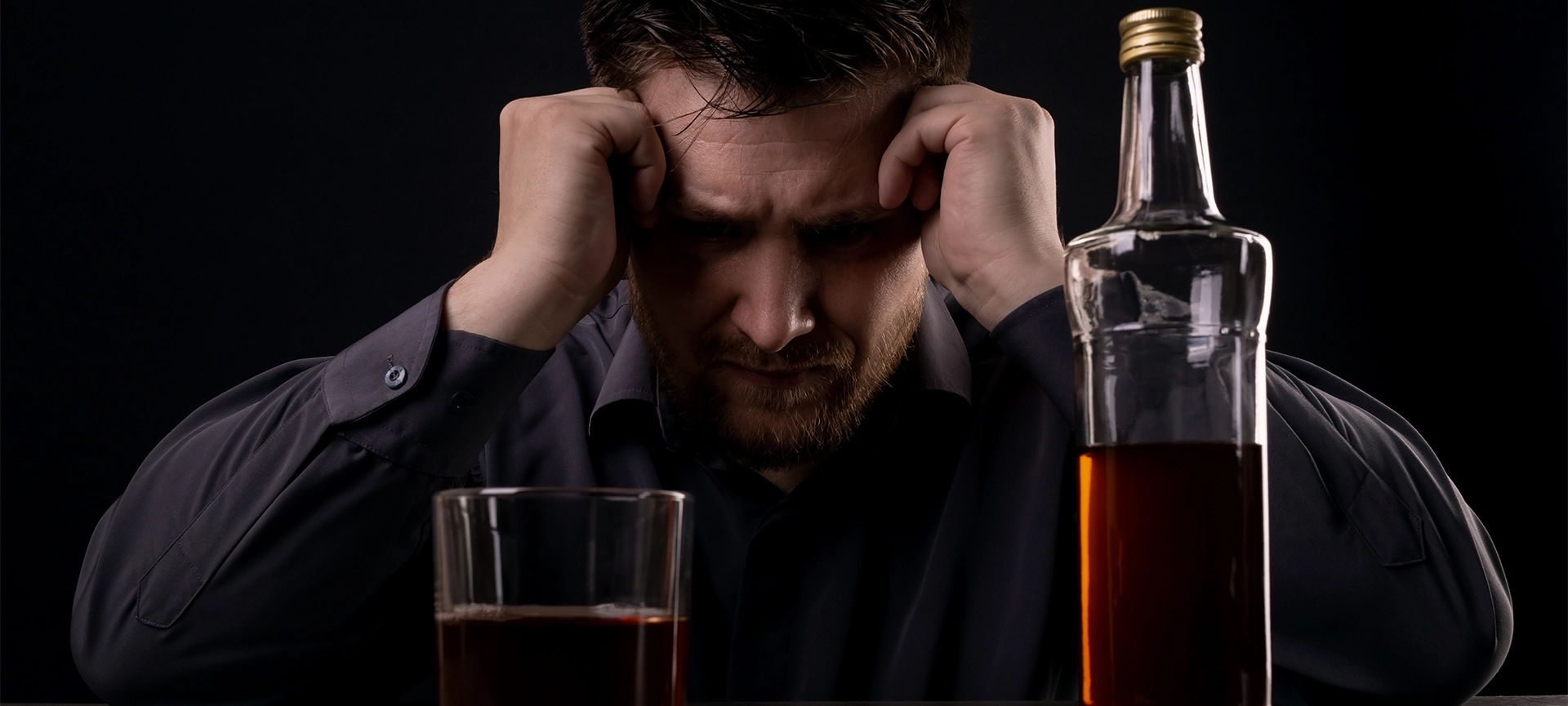Is Depression Related to Alcohol Abuse?
Drinking alcoholic beverages sometimes when you’re feeling stressed or sad is something most of us do. However, when you find yourself needing alcohol whenever you have a problem can be a sign that you’re suffering from alcohol use disorder.
There are some people who turn to alcohol during times of great stress. It may be a terrible breakup, problems at work, or troubles in the family that pushes some individuals to resort to drinking. Alcohol does help in making you sleep faster. It can also make you feel more relaxed and relieves you of your depression and anxiety. In this post, we’ll try to explore the relationship between depression and alcohol abuse.
There have been studies that show that there is a strong connection between depression and alcohol abuse. However, the question here is does drinking regularly lead a person to suffer from depression, or are people who have depression more likely to consume too much alcohol? As it turns out, both of these scenarios are possible.
Is Depression a Factor in Alcohol Abuse?
Studies state that about a third of the people suffering from a major depressive disorder also have a problem with alcohol abuse. Most of the time, it’s the depression that comes first. Children who have depression seem to have more problems dealing with alcohol as they grow older. With teens who are suffering from depression, what usually happens is that they start drinking sooner than those who do not have a mental health condition.
With women, if they have a history of major depressive disorder, they will start to drink heavily more than others. Experts state that women tend to drink more when they’re feeling down compared to men. Whether this applies to you or not, what is sure is that drinking alcohol doesn’t do anything good to make the situation better. Also, it can make your depression much worse.
Individuals who have depression and also drink too much alcohol experience more frequent and more severe depressive episodes. What is also alarming is that these individuals think of suicide more compared to people with depression who do not drink alcohol. When a person drinks too much alcohol, the antidepressants they’re taking can become less effective, and that makes their depression worse.
Related article: How to Talk to Your Children about Drug and Alcohol Abuse?
Is Alcohol a Factor in Depression?
By now, you may already know that alcohol is an example of a depressant. What this means is that the more you drink alcohol, the more you’ll feel down. When you drink too much, it can harm the brain, and then depression with ensue.
When you’re drinking a lot of alcohol, you’ll risk making bad decisions and acting on impulse. This may result in you draining your finances, ruining good relationships, or losing your job. When any of those things happen, then you’ll feel worse; more so if you’re genetically inclined to experience depression.
Related article: Depression Treatment
Lifestyle Vs. Genes
At present, it is not yet clear whether alcohol makes you depressed or depression leads you to be an alcoholic. There were studies on twins about alcohol abuse and depression and what researchers found was that the factors that cause heavy drinking are also the same ones that cause depression. There is also a common gene that is involved in the attention and memory functions of the brain that can make some people more at risk for depression and alcohol abuse.
As for a person’s lifestyle, the social environment also plays a major role in the development of depression and alcohol use disorder. For example, it has been noted that children who have had experiences of abuse or were raised in a poor environment were more likely to suffer from both conditions later in life.
What to Do About Alcohol Abuse and Depression?
It is certainly not bad to have an alcoholic beverage at times. However, if you have a particular health condition, then you should probably avoid drinking alcohol altogether. If you notice yourself turning to alcohol just so you can survive the day or escape your problems in your family, work, or relationships, then you may have to start acknowledging that there is a serious problem here.
Both depression and alcohol abuse are serious conditions that shouldn’t be ignored. If you feel that you have either or both conditions, then it may be best to consider talking to a physician or a counsellor. For depression, you can go to a psychiatrist so you can talk about the available medications to help manage it. There are also meds that can aid in controlling your cravings for alcohol. Both of these conditions may be treated together.
Related articles: How to Overcome Alcohol Addiction
How to Stop Drinking Alcohol?
If you have struggled with your drinking habits and you’re starting to question if you’re an alcoholic, then it’s best if you stop drinking alcoholic beverages. When you’ve decided to kick the habit, do seek help from healthcare professionals so you can go through detox safely.
Stopping your drinking habits may not be the hardest part of your recovery. Perhaps the most difficult part is admitting to yourself that you have a problem and that you need help. As adults, we don’t want to feel helpless. Asking for help is one of the things that are uncomfortable to do. But it is a necessary step if you want to get sober and get rid of alcohol from your life.
Wanting to quit alcohol is a good thing. But remember that you also have to take the necessary steps to make your desire to stop the habit a reality. Let’s explore some of the steps on how to stop drinking alcohol.
Related article: How to Stop Drinking and Live a Life the Normal Way Once More
Admit that You have a Problem
When it comes to drinking, we usually think that there are only two groups: the alcoholics and the normal drinkers. However, there’s a big group in between these two. They are people who are already problematic drinkers who are on their way to becoming alcoholics.
If you have problems with your drinking habits, there’s a big chance that you’re already aware of it. Therefore, the first step that you should take to get sober is to admit to yourself that you have a drinking problem.
Try to ask yourself if your drinking habits are preventing you from leading a normal and healthy life. Is the life you have what you want? Do you hate yourself at times when you’re just wasted and you neglect your responsibilities at home or at work? Answer these questions honestly and you’ll be able to see your situation more clearly.
Don’t Compare Yourself with Others
Comparing yourself with other people won’t do you any good. For example, if you compare how another person is worse of an alcoholic than you are, what does that serve? Your life and your circumstances are different from theirs.
If you drink less than your more alcoholic neighbour, so what, right? If you have a drinking problem, it doesn’t matter if you drink more or less than the next person. It is still a problem. When you compare your drinking habits to other people’s then you’ll only end up justifying your drinking.
Imagine a Future for Yourself
Think of the life you want to have a few years from now if you still drink the way you do. Do you think you’ll still be well and healthy by then? It’s possible that you may not even be alive. Imagine the person you’ll become. Is that someone you’d want to be?
Think long and hard about what your future will be if you keep on drinking heavily. If you want to avoid getting sick or going broke because of your vices, then you should recognize that there’s a problem here and that you ought to confront it head-on.
Why Should You Quit Drinking Anyway?
There are many long-term advantages if you stop drinking. However, these may not be enough of a motivation for you to quit the habit. Most of the time, we want to enjoy the rewards instantly. That’s why we’ll share with you here some of the short-term advantages that you can experience immediately if you stop drinking alcohol.
You’ll Have More Time
When you drink, you lose yourself and a lot of time because you’re drunk. The next day, you’ll have to deal with the hangover. That may last for a few days if you were drinking heavily. Instead of spending time on meaningful things, you’re still trying to recover by sleeping.
If you stop drinking now, you’ll have more time sober. You can be productive at work and at home. You can spend time with your family and friends. It’s now possible to go back to the hobbies you once enjoyed. It can be reading, sports, or working out.
You’ll Have More Money
Alcoholic beverages are expensive. If you drink a lot, then you’re also spending a lot. If you can manage to even just lessen the amount of alcohol that you consume and put away some of the money that you’ll be spending on alcohol, you’ll immediately have more money.
Once you can see how much you can save just by spending less on alcohol, you’ll surely be encouraged to continue lessening your alcohol consumption. You can then spend that money on other things. You can buy what you like such as new clothes, accessories, jewelry, or invest the money in mutual funds and other kinds of investments.
You’ll Sleep Better
As we’ve already established, alcohol is a kind of depressant. What this means is that it will make you feel exhausted. Alcohol can disrupt the way you sleep as it throws off the balance of your body, especially the sleep patterns.
This adds up to the damage that alcohol does to your body. By stopping your drinking habits, you are guaranteed to have better sleep quality. If you add light exercises as well, you’ll be able to have a wonderful night’s rest. The next day, you won’t wake up to headaches anymore.
Related articles: Drinking Alcohol: These Things Will Make You Think Twice
Final Thoughts
When you give up alcohol, make sure that this goal is your top priority in your life. If you only commit partially, then you’re more likely to fail at this endeavour. When you make rules for yourself, then make sure that you do not do things that will break them. Otherwise, you’re only fooling yourself.
Say goodbye to night-outs and don’t be tempted when the beers are on sale. Never fall for the line “it’s just one drink” and “it won’t hurt you.” Remember that addiction is a brain disease. Acknowledge that you can’t control it even if you want to. So don’t tempt yourself.
Lastly, seek professional help so that you’ll be guided on your detox. You need all the help you can get to make sure that you’re on the right track towards your alcohol addiction recovery. Soon, you’ll look back and feel very proud of yourself for making this choice.







